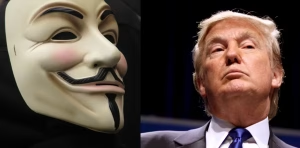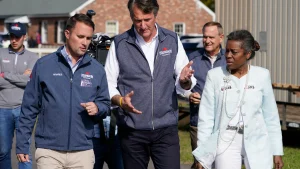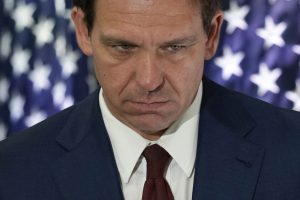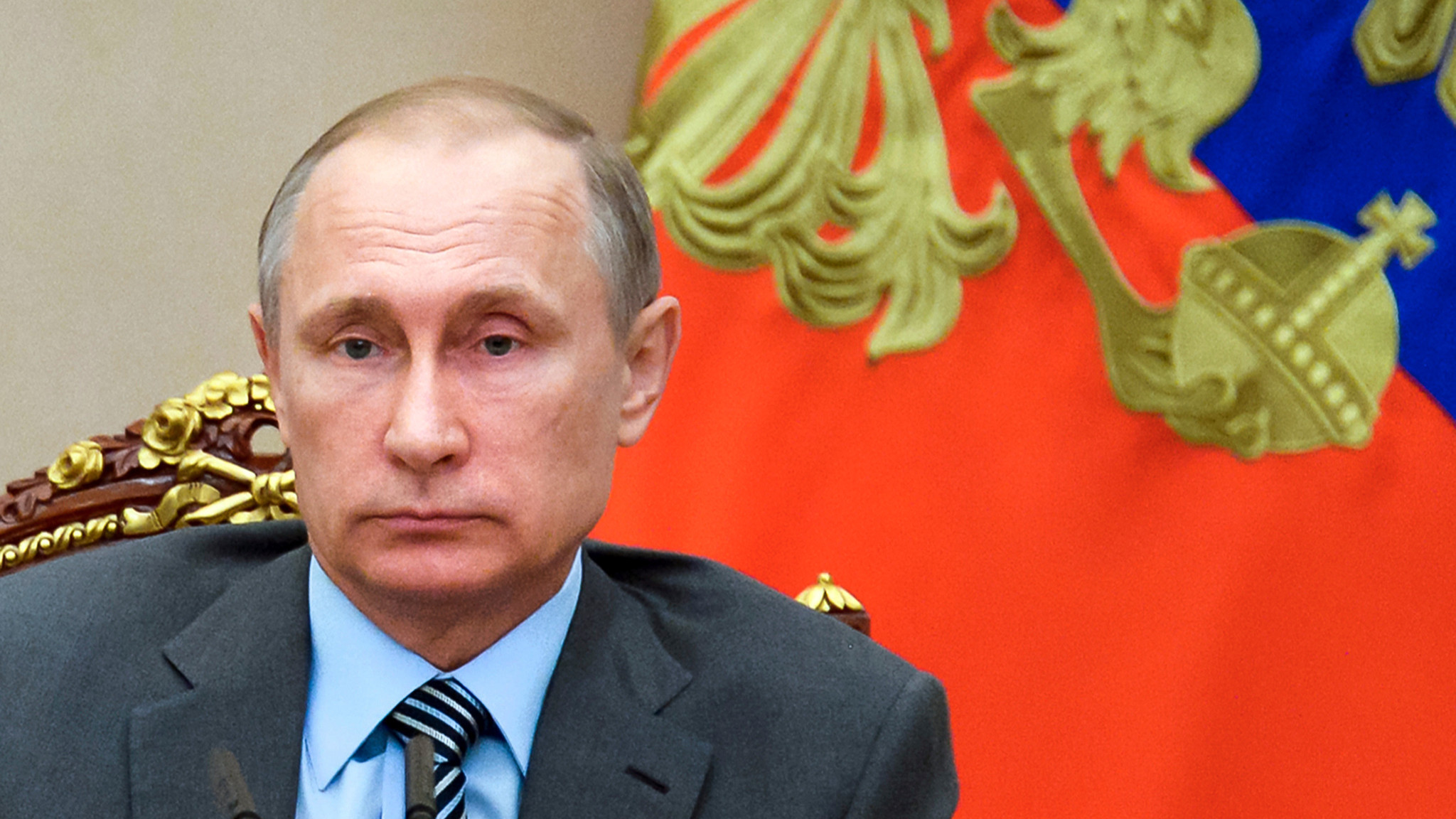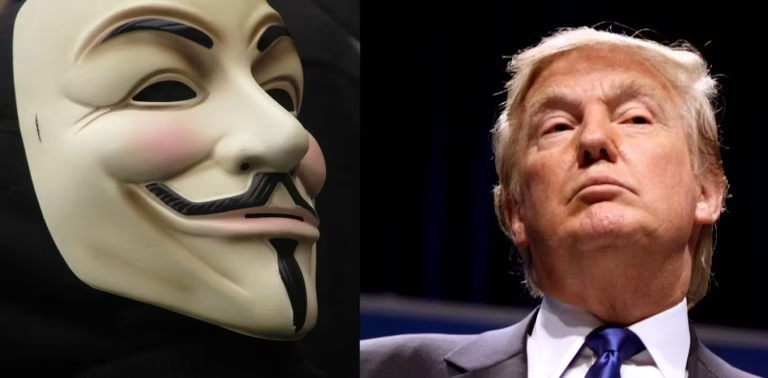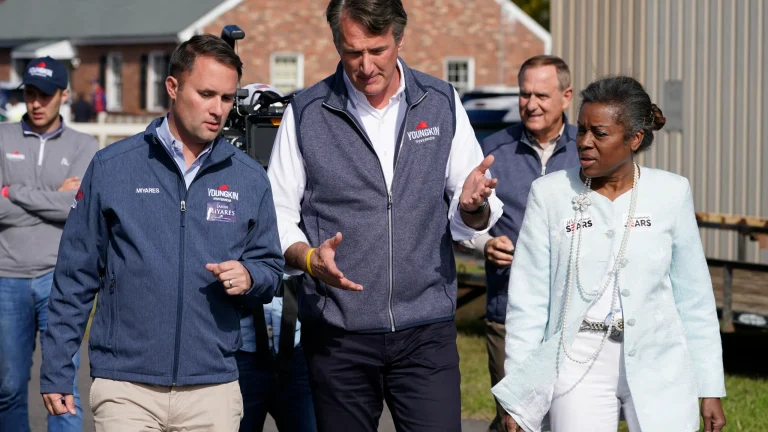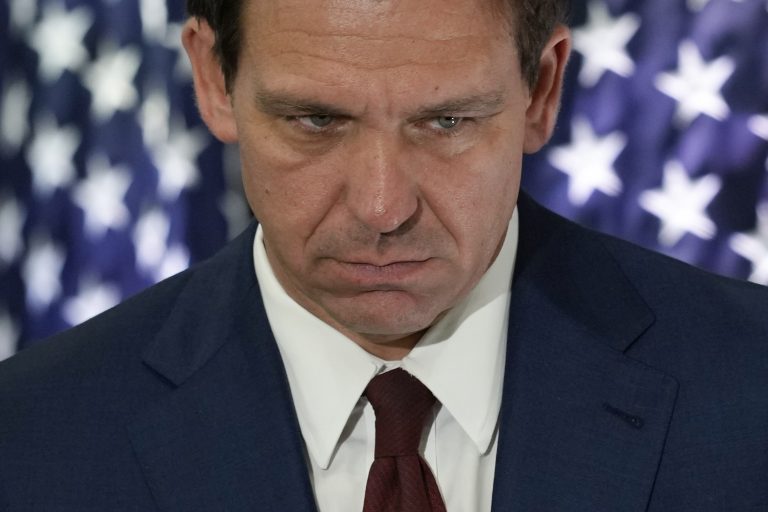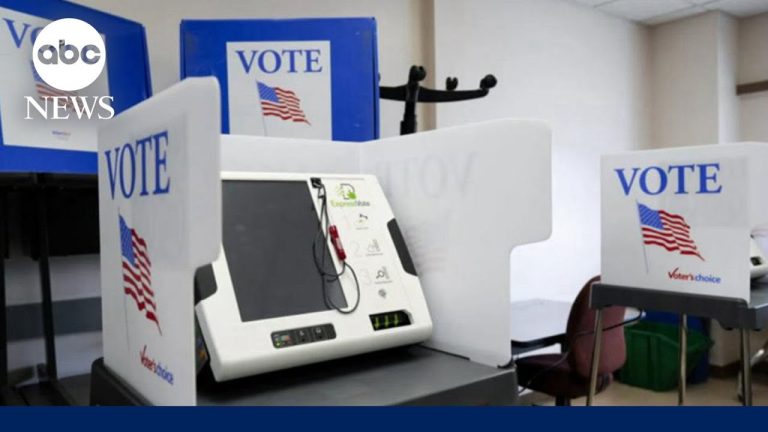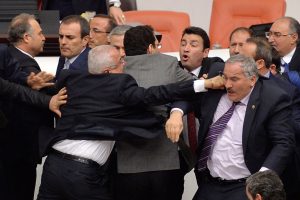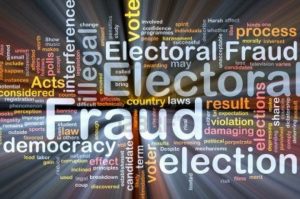Russia’s interference in the 2016 election has been widely documented but not thoroughly investigated. A congressional investigation of foreign interference is necessary, as is the declassification of what multiple Senators and intelligence officials have deemed “explosive information” concerning threats to the sovereignty and security of the United States. The public has a right to know whether the integrity of our electoral process has been compromised, whether Donald Trump is serving the American people or Russian interests, and whether the institutions that uphold our liberties will continue to do so.
I. Allegations of Russian interference. Elected officials have been calling for an investigation into Russian interference since the summer of 2016, but their calls were largely unheeded. In August, Senator Harry Reid requested that the FBI investigate Russian state interference as well as ties between Russia and members of Trump’s campaign team, including former campaign manager Paul Manafort, a well-known political operative who had previously acted on Putin’s behalf in Ukraine. In October, Reid wrote againto FBI director James Comey and declared: “In my communications with you and other top officials in the national security community, it has become clear that you possess explosive information about close ties and coordination between Donald Trump, his top advisors, and the Russian government…The public has a right to know this information.”
After the election, political leaders from multiple parties have reiterated Reid’s call for an investigation. Green Party candidate Jill Stein backed a vote recount effort due to voting irregularities in Wisconsin, Michigan and Pennsylvania, while cybersecurity experts stressed the need for an audit due to the likelihood of Russian hacks. Republicans Lindsay Graham and John McCain have both called for a forceful investigation of Russian election interference as well as a general inquiry into Russian corruption. Democrats including Chuck Schumer, the future Democratic Senate Minority Leader, have reiterated this call, backed by a number of their Democratic colleagues. President Obama and the Clinton campaign have also stressed the need for an investigation.
Over the summer, 17 intelligence agencies concurred that Russia was behind the hacking of the Democratic National Committee. As evidence that’s still classified but leaked to the media mounts, numerous intelligence specialists have confirmed Russian interference. NSA Director Admiral Michael Rogers has stated that Putin intentionally directly meddled in U.S. democracy to achieve a specific desired outcome. CIA officials have also confirmed that Russia purposefully intervened in the election with the specific intent of bringing Trump to power. Former CIA official Michael Morrell, who had warned of Russia’s intentions over the summer, called their operation “the political equivalent of 9/11.” On December 14, two senior intelligence officials said with “a high level of confidence” that Russian president Vladimir Putin was personally involved in the operation, and that the intelligence showing this attack against our electoral system and the integrity of our nation was carried by Kremlin officials at the highest levels of power.
In summary, leaders from the Democratic Party, the Republican Party, and the Green Party; intelligence officials from the CIA and the NSA; and the White House itself have stated that Russia interfered with the election. On November 10, Kremlin officials confirmed that it had indeed been in contact with the Trump campaign during the election. The only people involved in this situation who continue to maintain that Russia did not interfere with the election are Donald Trump and his backers.
II. The Motive. Since the end of the Cold War, Russia has been covered less by the media and until recently ceased to be a political priority of the U.S. government. As a result, it is difficult for non-specialists to understand the goals of Kremlin interference in the election. This section outlines the rationale for Russia’s actions, including:
* Economic vulnerability. In recent years, Russia has experienced economic turmoil due to sanctions imposed by the United States after its invasion of Crimea then east Ukraine. Trump, whose one consistent policy has been deference to the Russian state, is likely to drop the sanctions against both Russia and powerful oligarchs connected to Putin. Russia’s economy has also suffered due to its reliance on oil and the drop in oil prices. Trump’s appointment of an Exxon-Mobil executive as Secretary of State — one who was awarded a Medal of Friendship by Putin and whose multi-billion dollar oil deal in Russia was halted by the Obama administration — shows an alignment of Russian and Trump administration interests that is kleptocratic. The conflagration of private business interests, US government interests, and Russian state interests needs to be formally investigated.
* Expansion of territory and the NATO obstacle. Russia has tried to expand its territory in recent years, most notably by invading the Republic of Georgia and Ukraine. During the Republican National Convention, Trump’s campaign, then run by Paul Manafort, weakened the Republican Party’s platform language supporting Ukraine. The North Atlantic Treaty Organization (NATO), one of the world’s major international institutions, which U.S. is one of 28 member countries, is a political and military alliance that is vital to the national security of the U.S. and its European allies. Russia views NATO as the greatest threat to its imperialist goals. Kremlin officials have called on Trump to withdraw NATO defense systems from Russia’s border, despite Russia’s recent move of nuclear weapons to Kaliningrad on the border of Poland and Lithuania. Trump has not stated that he would honor NATO’s mission to protect member states but would instead review whether the U.S. would do so “on a case by case basis”. Under President Trump, the Kremlin could likely invade U.S. allies in Europe without U.S. opposition.
* The threat of Hillary Clinton. In 2011, Putin accused Secretary of State Clinton of meddling in Russian politics after Putin’s United Russia Party won a landslide of legislative seats in what many experts believe was a fraudulent election, sparking massive protests in Moscow. Clinton has since condemned the invasion of Crimea, sworn to uphold US obligations to NATO, denounced Russian interference during the campaign, and would have likely continued the sanctions against Russia. Trump, in contrast, has been named an “honorary Russian Cossack.” For Russia, not only was Trump a malleable candidate, but Clinton was a fierce opponent to their aims who needed to be stopped.
III. Russia’s previous election interference. Russian officials have a long track record of election manipulation, starting in their own country. Russia’s elections have not been deemed free or fair by international observers, and Russian citizens have protested the Kremlin’s assault on their democratic rights, resulting in protests and imprisonment of dissidents and journalists. Kremlin operatives have intervened aggressively in former Soviet states like Ukraine (where Manafort worked) and Georgia, installing puppet candidates who serve Putin, and violently punishing political opponents in those states. In recent years, the Kremlin has expanded its activity into the West, using a playbook of investing in both extreme left-wing and right-wing parties in order to manipulate the results to their liking. They have successfully intervened in elections in Hungary, France, Germany, the Balkan states, and possibly the UK Brexit referendum.
US officials have been warning about Russian attempts to install political leaders abroad for some time. In 2015, Joe Biden warned that “the Kremlin is working hard to buy off and co-opt European political forces, funding both right wing and left wing anti-systemic parties throughout Europe. President Putin sees such political forces as useful tools to be manipulated, to create cracks in the European body politic which he can then exploit.” In 2016, US citizens witnessed cracks in our own body politic being exacerbated by a Russian propaganda blitz, including illegal hacking of US officials and political operatives (which were then made public through Wikileaks), the employment of troll farms, and formal Kremlin operations like Russia Today (RT), an outlet which regularly features Trump’s national security adviser Michael Flynn.
IV. The Strategy. Russia’s strategy consisted of cyber warfare, online propaganda, manipulation of foreign press, and potential data mining of voters or other election interference. While the Kremlin has been aggressively limiting the ability of foreign media outlets, companies, and nonprofits from operating in Russia since 2011, it has spent an astronomical amount of money to launch its government propaganda war throughout Europe and the United States to drive Putin’s agenda, taking advantage of the free speech that is the foundation of democratic nations. Throughout the campaign, propaganda supporting Donald Trump was disseminated through dozens of fake news websites, paid trolls, bots, talking heads on Kremlin payroll, and state outlets like Sputnik and RT. Notably, many of these outlets were promoting Trump as a leader as far back as 2014, shortly after the invasion of Crimea, and before Trump declared his candidacy. U.S. conspiracy theorists Alex Jones runs the Info Wars site while working as a regular contributor to RT. Infowars claims to have 70 million viewers and often reposts RT’s propaganda.
The Trump campaign also used the company Cambridge Analytica to mine the private data of US citizens in order to target them with propaganda to influence their vote, particularly in Midwestern swing states. Cambridge Analytica CEO Alexander Nix stated the month before the U.S. election; “Today in the United States we have somewhere close to four or five thousand data points on every individual…So we model the personality of every adult across the United States, some 230 million people.” This data was collected without users knowing and without their permission. Cambridge Analytica is funded by American hedge-fund billionaire Robert Mercer, whose daughter Rebecca now serves as one of 16 people on the Trump Administration’s transition team. Trump’s son-in-law, Jared Kushner, was involved with Cambridge Analytica during the campaign. Steve Bannon, who ran the ultra-conservative website Breitbart before becoming Trump’s campaign chairman, and will soon be his White House senior adviser, is a board member of Cambridge Analytica. The data firm is a subsidiary of the SCL Group which is known for “military disinformation” campaigns. This raises questions as to whether Cambridge Analystica’s role on the Trump campaign was to spread fake news stories that matched the messaging of the Russian propaganda machine, and if so, whether there was coordination. More concerning, Steve Bannon is trying to secure major contracts for Cambridge Analytica to run the White House data operation.
V. Cyberwarfare. Most seriously, Russia engaged in cyberwarfare against the United States. Russia has some of the most advanced cyber warfare capabilities in the world and they have deployed it against the U.S. in publicly documented incidents, including intercepting private phone calls between state officials and hacking State Department emails in 2015 in what was labeled as the “worst ever” cyber-attack against a federal agency, a hack which included the U.S. Joint Chiefs of Staffs and the White House. An enormous amount of data was stolen from these attacks that has since been used to strategically target our diplomats and military personnel, putting them in danger and weakening our intelligence operations overseas.
During the 2016 presidential election, Russians took their cyber espionage to a level beyond quietly snooping and pulling emails. Their objective was to use the stolen correspondences to impact public opinion about the election by releasing private emails in a relentless drip. They did this through multiple proxy sites including DC Leaks and Wikileaks. While it was since revealed that both the Democrats and the Republicans were hacked, only personal information about Democrats was released, while information about Republicans may be used for blackmail. Trump has expressed approval of these hacks, even asking Russia at what would be his final campaign press conference, on July 27, to hack Clinton’s email: a request that many have suggested violates the espionage act of the U.S. Code. Multiple cybersecurity experts expressed alarm over this incident and have noted both before and after the election that U.S. voting machines were vulnerable to foreign hacks.
Two months before election day, the FBI warned that Russians were targeting the voter database systems of more than half the states. They successfully penetrated four states, and stole 200,000 voter contacts in Illinois. The Department of Homeland Security teamed up with the states targeted to ensure the Secretary of States received extra protection from cyber attacks on election day. However, vulnerabilities remained at the county and precinct levels. During the Wisconsin recount, one county cyber security expert checked the county’s server and discovered unusually heavy Russian traffic that started on March 15th and remained consistent throughout the recount. In May of this year, Senator Chuck Schumer announced a plan to combat the growing problem of Russian “ransomware” attacks of small towns and counties in upstate New York, displaying Russia’s ability to micro-target at the local level.
VI. A multi-year operation. The Russian operation to bring Trump to power may have been years in the making. In October 2016, journalist David Corn published an interview with a veteran spy who had researched Trump extensively for corporate clients, and his findings connecting Trump to Russia were so alarming that he reached out to the U.S. intelligence community and shared the information. According to Corn, the spy reported that the “Russian regime has been cultivating, supporting and assisting Trump for at least [five] years,” and Trump and his “inner circle have accepted a regular flow of intelligence from the Kremlin, including on his Democratic and other political rivals.” Many articles published throughout the 2016 election lend support to these findings, including that Trump lied to Americans about his relationship with Putin, went to great lengths to downplay his strong business partnerships with Putin’s inner circle of Russian oligarchs, and had heavy Russian investment in his businesses in the U.S.
Because Trump will not release his tax returns, we do not know the nature of his investments. But we do know that Trump’s corporation has as many as 250 businesses registered in Russia. In 2013, Trump hosted the Miss Universe pageant in Moscow, tweeting beforehand “Do you think Putin will be going to The Miss Universe Pageant in November in Moscow — if so, will he become my new best friend?” While in Moscow, Trump met with multiple Kremlin-tied oligarchs, made multi-million dollar deals, and possibly was a victim of kompromat, a form of Russian blackmail. The employment of kompromat to blackmail is common practice in post-Soviet states, and it should be investigated whether Trump was its victim and whether this helps guide his obsequious fealty to the Russian Federation.
Once he became president-elect, Trump engaged in a series of actions that indicate he will abuse executive power to the benefit of Russia. Though he began receiving highly classified information that likely reinforced more examples of Russian hostility toward the U.S., he declared, “If [Putin] says great things about me, I’m going to say great things about him.” He has remained passive as Russia amped up their aggression toward U.S. military overseas; waged a campaign of harassment and intimidation against U.S. diplomats, embassy staff and their families in Moscow so severe that Secretary of State John Kerry formally requested they stop; and has continued its cyberwarfare and propaganda efforts. Trump has built a cabinet of individuals who have direct ties to the Kremlin and who will benefit, much like Trump, from a kleptocratic shakedown of U.S. businesses and resources, to the detriment of ordinary American citizens.
VII. Trump campaign’s Russia connections. In addition to Trump’s business connections in Russia, Trump’s presidential campaign had senior advisers with strong Russian links, who now have influence on shaping his administration. The most notable is Trump’s former campaign chairman Paul Manafort whose last successful presidential campaign was for Ukraine’s former Putin-puppet president Victor Yanukovych who stole tens of billions of dollars from Ukraine before being overthrown in 2014 and fleeing to Russia. Manafort, who worked in Russia, has also represented some of the world’s most brutal dictators. He is now advising Trump’s transition team.
Manafort’s business partner Rick Davis has also done some questionable work overseas and is linked to Russian oligarch Oleg Deripaska who is suspected of being tied to anti-democratic and organized crime leaders. Davis is now the “shadow Chair” of Trump’s Presidential Inaugural Committee. Trump campaign adviser Carter Page was investigated by U.S. intelligence officials for his meetings with Russian officials during the campaign where Page allegedly discussed lifting economic sanctions if Trump won the election. Boris Epshteyn is a Trump campaign senior spokesman with strong ties to Russian businesses and government officials, who often appeared on cable news networks promoting Trump’s anti-immigration platform. General Michael Flynn, Trump’s appointee for National Security Director, was a campaign foreign policy adviser who received money from the Kremlin in December of 2015 for speaking at the RT 10th anniversary Gala in Moscow and was seated next to Putin. Roger Stone, who has known Trump for decades, is a former business partner of Manafort’s and admitted to having a “back channel” to Julian Assange of Wikileaks. Julian Assange has also been paid by the Kremlin when he hosted his own show at the Kremlin-funded network RT.
Conclusion: Hillary Clinton won the popular vote by almost 3 million more votes than Donald Trump. Trump won the electoral vote by less than 80,000 votes combined in Michigan, Pennsylvania, and Wisconsin, where Republicans went to great lengths to block recount efforts. Based on the facts, it is beyond a reasonable doubt that Russia influenced the 2016 U.S. election which helped Trump win the White House. Trump’s consistent refusal to admit Russia’s involvement, especially given his access to highly classified information, demonstrates he is either unreasonable and possibly of unsound mind or he is aiding and abetting Putin. This is a national security issue that the Electoral College must take seriously when casting their votes on Monday. In the meantime, it is imperative that a thorough investigation is conducted as to the extent of Russia’s operation, and that this information pertaining it be released to the public.
Source: https://medium.com/@alexandrachalupa/russias-interference-americans-have-a-right-to-know-a2aabd922129#.o0tp6pthi

